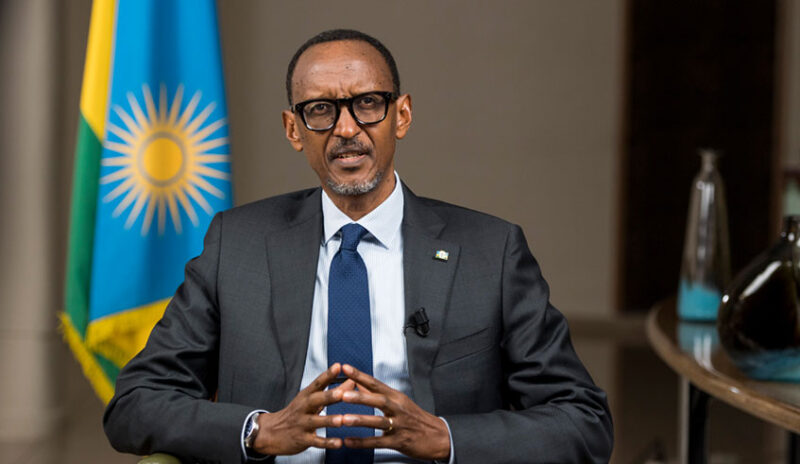

Rwandan President Paul Kagame
Rwanda shuts 4,000 churches over noise pollution, others
It has primarily affected small Pentecostal churches and a few mosques, some of which operate from caves or on riverbanks.
“This is not being done to prevent people from praying but to ensure the safety and tranquilly of worshippers,” Minister of Local Government Jean Claude Musabyimana told state media.
It is the first serious crackdown since a law was enacted five years ago to limit the expansion of places of worship.
It requires them to function in an organised and safe setting, as well as prohibits the use of loud public address systems.
The Act also requires all preachers to complete theological instruction before starting a church.
When the law was passed in 2018, over 700 churches were immediately closed.
READ ALSO:
Rwandan President Paul Kagame stated at the time that the country did not require as many houses of worship, claiming that such a large number was only appropriate for more developed economies with the resources to sustain them.
Kagame, who recently won a fourth term in office with 99% of the vote, governs a closely controlled society in which his critics claim there is limited freedom of expression.
Local urban authorities are collaborating with the Rwanda Governance Board (RGB) to conduct an ongoing operation targeting churches.
The authorities claim they’re taking a firm stance because churches have had five years to completely comply with the requirements.
“The government has taken a stance against proliferation in the houses of worship. We still see cases of dilapidated [structures] and unhygienic conditions,” RGB chief Usta Kayitesi told reporters.
Mr. Musabyimana claimed that some of the churches that had been closed were operating in tents, exposing attendees to danger.
So far, 4,223 houses of worship have been closed, 427 of which are in caves, according to the privately owned Kinyarwanda language Igihe news website.
The vast majority of Rwandans are Christians; however, many still practice traditional beliefs.
Pentecostal churches, generally led by charismatic preachers who claim to be able to perform miracles, have expanded fast in many parts of Africa in recent years.
Some are large, attracting thousands of worshippers each Sunday, while others are little structures constructed without planning approval.
CFAO subsidiary LOXEA unveils BYD electric vehicles in Nigeria A subsidiary of CFAO Mobility, LOXEA…
‘Bitcoin could replace U.S. Dollar as global currency’ BlackRock Chairman and CEO Larry Fink acknowledged…
Aide to Israel’s Netanyahu arrested in PM corruption probe Israeli police announced on Monday the arrest…
Kano Gov Yusuf, Sanusi linked to Eid killings A coalition of civil society organizations under the Global…
'I was offered N5bn bribe to impeach Fubara' The political tension in Rivers State has taken…
2027 election: Shehu Sani declares bid for Kaduna central senatorial seat Former Kaduna Central Senator, Shehu…